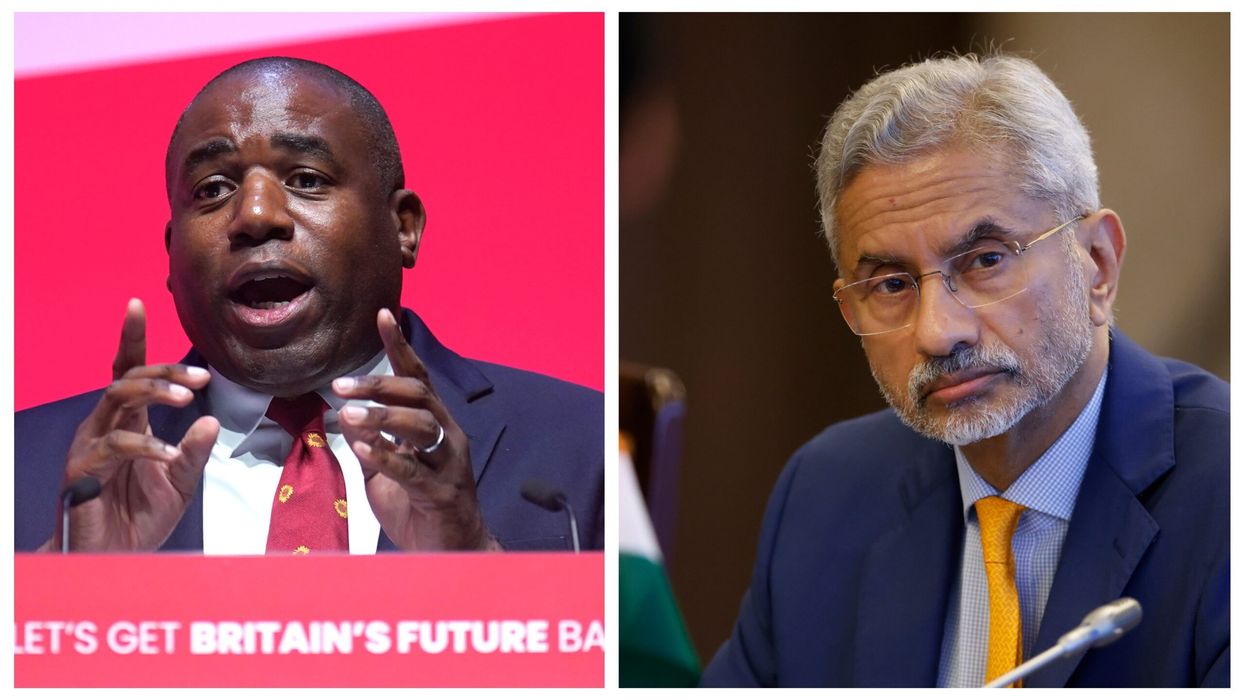INDIA’s external affairs minister S Jaishankar spoke with British foreign secretary David Lammy on Friday and said there must be “zero-tolerance” to terrorism.
The phone conversation came amid efforts by India’s strategic partners to reduce tensions between New Delhi and Islamabad.
“Our discussions centred around countering terrorism, for which there must be zero-tolerance,” Jaishankar said in a post on social media.
On Thursday, Jaishankar also held phone talks with US Secretary of State Marco Rubio, Italian deputy prime minister Antonio Tajani, and European Union High Representative for Foreign Affairs and Security Policy Kaja Kallas.
ALSO READ: JD Vance says US won't intervene in India-Pakistan conflict
Tensions between India and Pakistan have risen following India’s Operation Sindoor early on Wednesday and Pakistan’s subsequent unsuccessful attempt to attack 15 Indian cities.
US State Department spokesperson Tammy Bruce said Rubio stressed the need for immediate de-escalation.
“He expressed US support for direct dialogue between India and Pakistan and encouraged continued efforts to improve communications,” she said.
“The secretary reiterated his condolences for the horrific terrorist attack in Pahalgam and reaffirmed the United States’ commitment to work with India in the fight against terrorism,” Bruce added.
ALSO READ: India's response to Pahalgam attack was limited to terror targets: Vikram Doraiswami
On his phone call with Kallas, Jaishankar said: “Discussed ongoing developments with EU HRVP @kajakallas.”
“India has been measured in its actions. However, any escalation will get a firm response,” he added.
The European Union said it is “monitoring closely and with great concern the growing tensions in the region and the ensuing consequences, including the possible loss of more lives.”
“The EU calls on both parties to exercise restraint, to de-escalate tensions and desist from further attacks to safeguard civilian lives on both sides,” it said.
“The EU urges both sides to engage in dialogue. It is vital that India and Pakistan also live up to their obligations under international law and take all measures possible to protect civilian lives,” it added.
ALSO READ: What is Operation Sindoor, India's strikes in Pakistan?
The EU said it will work with all parties to de-escalate the situation.
The UK foreign secretary on Wednesday also said the current tensions were a serious concern.
“The UK government is urging India and Pakistan to show restraint and engage in direct dialogue to find a swift, diplomatic path forward,” he said.
“The UK was clear in its condemnation of the horrific terrorist attack in Pahalgam last month. We need all sides to work urgently to see regional stability restored and ensure protection of civilians,” he added.
(With inputs from PTI)





